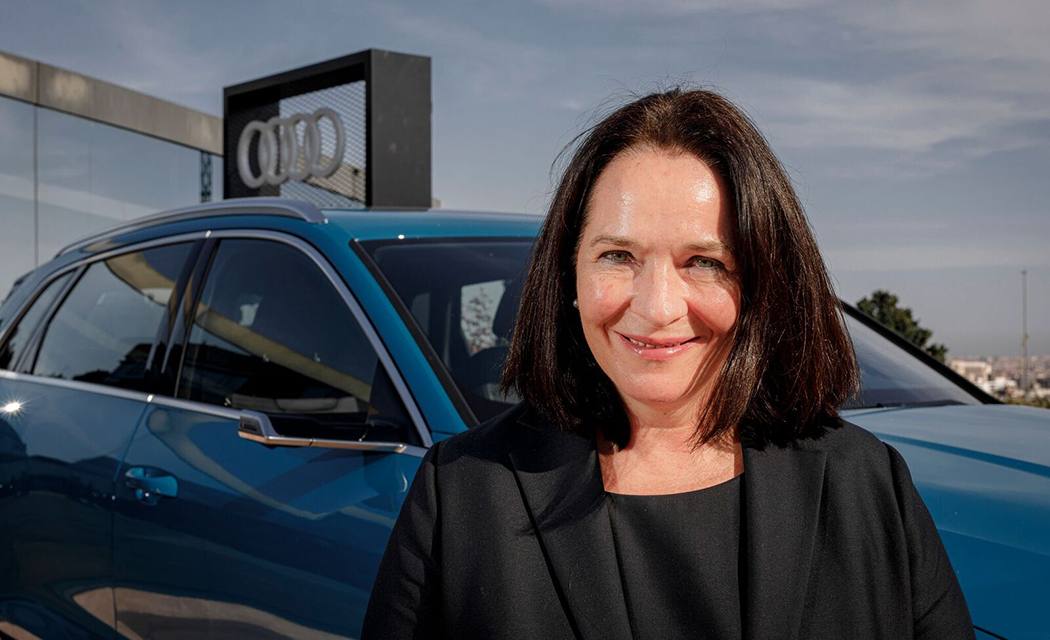
IESE Insight
Gaby-Luise Wüst: "It's important to have a purpose that you're able to communicate clearly"
The President of Audi China discusses the evolution of the auto market in Asia, and why she believes it is an exciting time for the industry. In this interview with IESE's Marc Sachon, Wüst reveals the four pillars of her management philosophy.
With 1 in 3 Audi sales currently in China, the Asian giant represents a top market for the German car manufacturer. Audi foresees 40% of its sales there by 2025, thanks to younger buyers and successfully meeting the demand for electric cars, digitalization and technological innovations such as autonomous vehicles.
Gaby-Luise Wüst — President of Audi China in Beijing, Executive Vice President of Sales & Marketing for Volkswagen Group China, and Vice President of Sales China for Audi AG in Ingolstadt — has witnessed this growth firsthand. (Prior to Audi, she also worked in and for the region with BMW Group and Nissan Group.)
During a visit to IESE for the 34th edition of IESE AUTO, Wüst sat down with IESE professor Marc Sachon, chair of IESE AUTO, to talk about driving transformation as the automotive sector shifts gear worldwide.
Marc Sachon: What's the key difference between Chinese and European automotive markets?
Gaby-Luise Wüst: The most obvious one is our customers. The average Chinese customer is about 15 years younger than a European customer, making their requirements and expectations very different when it comes to connectivity, for example — the seamless integration of their devices into their cars. And it's up to us, as a manufacturer, to respond to their requirements and even exceed their expectations.
MS: How do you see the new energy vehicle (NEV) market in China evolving?
GW: The Chinese government really helped to develop the NEV market very fast. Five years ago, the market was zero and now there are an estimated 1.3 million NEVs. That rapid growth was fueled by subsidies and incentives. Now that the government has reduced or cancelled those subsidies, we're seeing a sharp decline.
That said, we're confident that any decline will only be short term and the market will recover. For one thing, the government is investing heavily in infrastructure. So, even if the financial subsidies have been reduced, there are still a lot of incentives, especially in cities: for example, it's much easier to register your car and get a license plate in a city if you have an NEV. As such, we firmly believe that the NEV market will grow further. By 2025, NEVs are projected to account for 25%-28% of the premium market in China.
MS: Why should young people want to work for a car manufacturer today?
GW: I think it's an exciting time to join the automotive industry — to be part of transforming it from what it was traditionally to the new age. We need new skills and progressive mindsets. That, combined with a strong company brand, a strong industrial base and strong processes, will help bring us to the next phase of our transformation. For young talent, there are so many opportunities, not only in China, but on a worldwide scale, to develop in so many aspects. We really welcome new talent.
MS: We don't yet see a strong representation of Chinese nationals in the industry. Do you think that will change?
GW: The Chinese market is a big contributor to our performance, so it's important that we have Chinese talent on board. We put a special focus on offering opportunities for Chinese talent to work in our group and develop their career paths with us. A lot of our top managers are Chinese and they're playing a big role in our Ingolstadt headquarters. It's only a matter of time before we see a Chinese board member. Definitely, to succeed in China, it's important to have local talent. That's a competitive edge.
MS: How would you summarize your management philosophy?
GW: I go by these four. First, be able to organize the actions necessary to get problems solved. Second, be able to identify potential, whether people or opportunities, and then materialize that potential. Third, especially in large corporations, be able to convince all the stakeholders and get them on board. For that, it's important to have a purpose that you're able to communicate clearly, and you're able to express complex matters in simple terms, to convince other people and get them on board. Finally, and maybe the most important, be able to form and mobilize teams — to really get people into the team — in order to support the cultural transformation.
Watch
A version of this interview is published in IESE Business School Insight 154.
